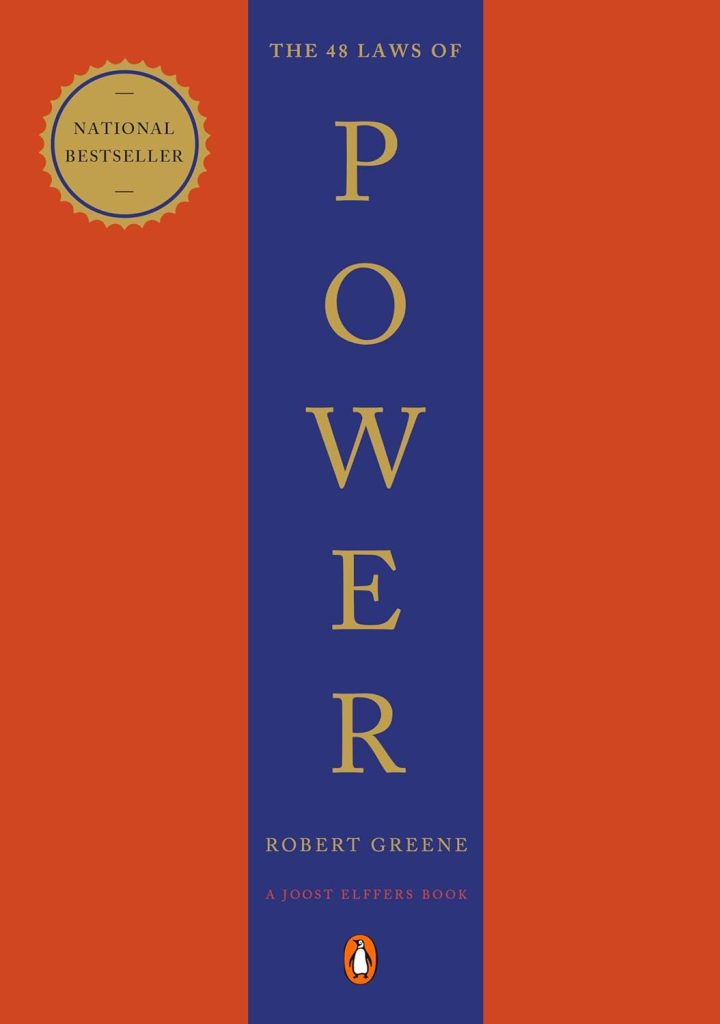Curious about gaining control and influence? Robert Greene’s ’48 Laws of Power’ offers a guide to navigating the complexities of power, persuasion, and manipulation. But is it worth reading, or does it promote sneaky behavior without caring about what’s right or wrong?
Okay, the ‘48 Laws of Power‘ offers practical wisdom on understanding human interactions and power dynamics. It’s worth reading for its insightful lessons on navigating complex social situations and mastering the art of influence.

Let’s delve into what ’48 Laws of Power’ has to offer!”
Is 48 Laws of Power Worth Reading?
The book “48 Laws of Power” by Robert Greene is worth reading if you’re interested in understanding human dynamics and the strategies people use to gain and maintain power. It offers insights into how power operates in various contexts, from personal relationships to politics to business.
One reason why it’s worth reading is that it provides valuable historical examples to illustrate each of the 48 laws. These examples range from ancient times to modern history, showing that the principles of power are timeless and universal. By studying these examples, readers can gain a deeper understanding of how power dynamics work and how they can navigate them in their own lives.
Another reason to read “48 Laws of Power” is that it encourages critical thinking about power and morality. While some of the laws may seem Machiavellian or unethical, Greene emphasizes that they are descriptive rather than prescriptive. In other words, he’s not telling readers to behave in a certain way, but rather showing them how power operates in the world. This allows readers to reflect on their own values and how they want to approach power in their lives.
Furthermore, the book offers practical advice on how to deal with power dynamics in various situations. Whether you’re navigating office politics, negotiating with others, or seeking to advance your career, the principles outlined in the book can help you strategize effectively. By understanding the laws of power, you can better anticipate others’ actions and make more informed decisions.
However, it’s important to approach the book with a critical mindset. While it offers valuable insights, it’s not a one-size-fits-all guide to success. The laws of power may not always apply in every situation, and blindly following them without considering the consequences can lead to negative outcomes. It’s important to use discernment and moral judgment when applying the principles outlined in the book.
Moreover, Greene’s writing style, characterized by its anecdotal storytelling and provocative language, may not resonate with everyone. Some readers may find his tone cynical or manipulative, which could detract from the book’s overall message.
In essence, “48 Laws of Power” is worth reading for its insights into human behavior, historical examples, and practical advice on navigating power dynamics. However, readers should approach it with a critical mindset and consider their own values and ethics when applying its principles.
Why Is 48 Laws of Power so Popular?
“The 48 Laws of Power” has achieved widespread popularity due to its captivating exploration of timeless principles that govern human interactions.
One of the primary reasons for its popularity is its engaging narrative style, which draws readers into a world where power dynamics shape the course of history and influence personal success. Greene’s meticulous research is evident throughout the book, as he skillfully weaves together historical anecdotes, biographical sketches, and psychological insights to illustrate each of the 48 laws.
Another key reason for the book’s popularity is the practical wisdom it offers. The book’s appeal extends beyond mere entertainment; it offers practical wisdom that resonates with individuals across various cultures, professions, and backgrounds.
Whether you’re a business executive, politician, artist, or student, the lessons contained within the book provide valuable insights into navigating the complexities of social interactions. By examining the strategies employed by historical figures such as Machiavelli, Sun Tzu, and Queen Elizabeth I, readers gain a deeper understanding of human behavior and the mechanisms of power.
The “48 Laws of Power” is not without controversy, and this controversial nature contributes to its popularity. By confronting uncomfortable truths about manipulation, deceit, and ambition, the book delves into the darker aspects of human nature.
While some may criticize its morally ambiguous teachings, others are drawn to its unflinching portrayal of the realities of power dynamics. This controversy sparks discussions and debates, further fueling interest in the book and cementing its status as a thought-provoking and influential work.
Why You Should Read The 48 Laws of Power?
There are several compelling reasons to read “The 48 Laws of Power.”
Firstly, the book offers a unique opportunity to gain insight into the workings of power dynamics and social interactions. By studying the successes and failures of historical figures, readers can develop a deeper understanding of human behavior and the strategies employed to wield influence.
Additionally, “The 48 Laws of Power” provides practical strategies for navigating complex social situations. Whether you’re negotiating a business deal, managing a team, or seeking to advance your career, the principles outlined in the book offer valuable guidance for achieving your goals.
Moreover, reading this book encourages introspection and self-awareness. By confronting uncomfortable truths about human nature and the pursuit of power, readers are prompted to reflect on their own values, beliefs, and motivations. This introspection can lead to personal growth and a deeper understanding of oneself and others.
Overall, “The 48 Laws of Power” offers a compelling blend of historical insight, practical wisdom, and thought-provoking commentary on human behavior. Whether you’re a student of history, a business professional, or simply someone seeking to understand the world better, the book provides valuable insights into the dynamics of power and influence.
Who Should Read The 48 Laws Of Power?
While “The 48 Laws of Power” has broad appeal, it may not be suited for everyone. Individuals who prefer an idealistic worldview or are uncomfortable with manipulation and deceit may find its teachings challenging. However, the book can be particularly beneficial for those who are willing to engage with its material critically and extract valuable insights.
Business leaders, entrepreneurs, politicians, and anyone in a position of influence can benefit from studying the principles outlined in “The 48 Laws of Power.” By understanding the strategies employed by historical figures to wield power, individuals can enhance their leadership skills, improve their negotiation tactics, and navigate complex social dynamics more effectively.
Additionally, students of history, psychology, and sociology may find “The 48 Laws of Power” to be a valuable resource for understanding human behavior and social interactions. By examining the principles outlined in the book through a scholarly lens, readers can gain a deeper appreciation for the complexities of power dynamics throughout history.
In summary, “The 48 Laws of Power” is well-suited for individuals who are curious about the nature of power and influence, willing to confront uncomfortable truths, and open to extracting valuable insights from historical examples and practical applications.
Final Words
“The 48 Laws of Power” by Robert Greene is a controversial yet influential book. Ultimately, whether “The 48 Laws of Power” is worth reading depends on your objectives and approach. If you’re interested in understanding the dynamics of power and human behavior, the book offers valuable insights that can broaden your perspective.
However, it’s essential to approach it with a critical mind, recognizing both its strengths and limitations. Additionally, readers should be mindful of the ethical implications of applying the laws outlined in the book and strive to use them responsibly and ethically.


